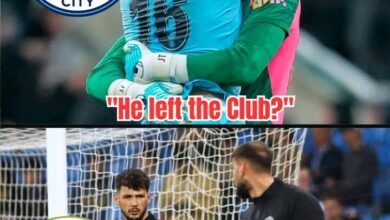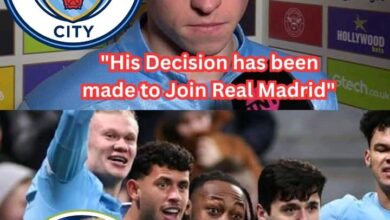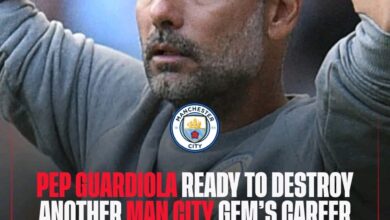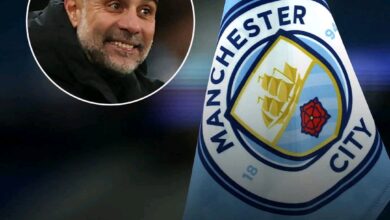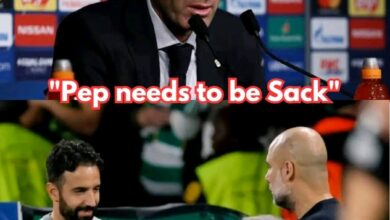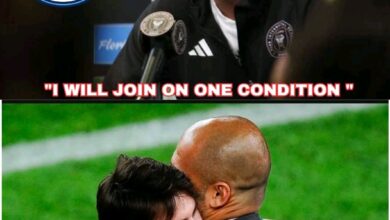Stefan Ortega’s Manchester City Future: An In-Depth Analysis
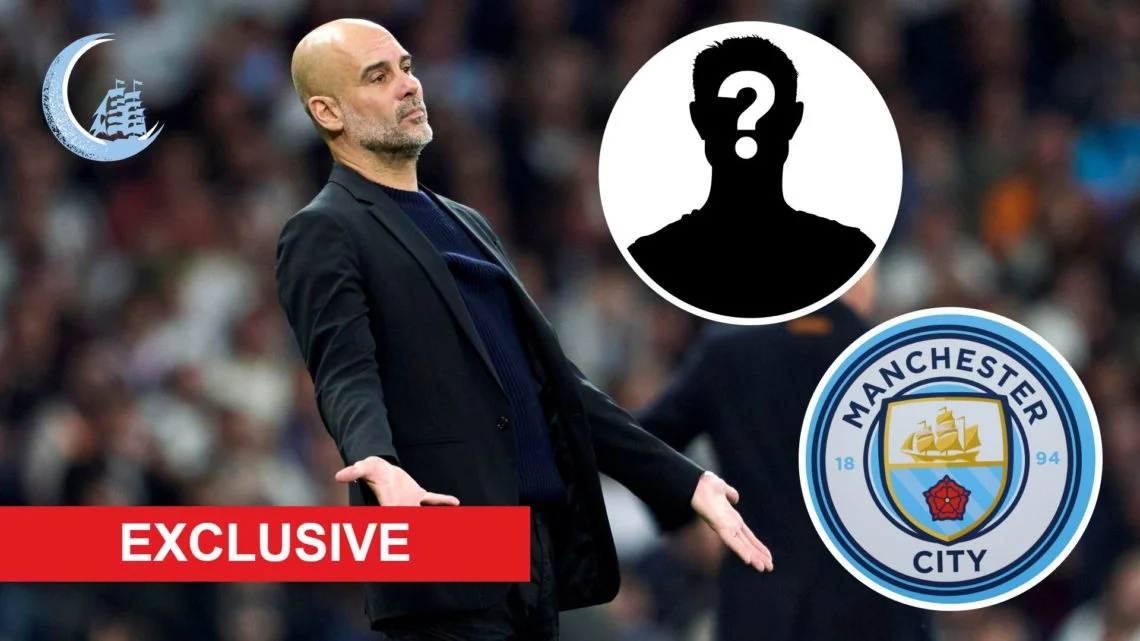
The goalkeeper position at Manchester City has become one of the most intriguing storylines surrounding Pep Guardiola’s squad as the 2025 season progresses. While the Citizens continue their pursuit of domestic and European glory, a significant subplot has emerged regarding the future of Stefan Ortega, the German shot-stopper who has served as the club’s reliable backup goalkeeper since his arrival in 2022. Recent developments suggest that Ortega’s camp is actively exploring opportunities elsewhere, raising questions about Manchester City’s goalkeeping hierarchy and the difficult decisions that lie ahead for both player and club.
Stefan Ortega finds himself in a challenging position at the Etihad Stadium. Despite his exceptional performances whenever called upon, the 32-year-old German goalkeeper remains firmly entrenched as the second choice behind Ederson Moraes. This reality has become increasingly difficult for a player of Ortega’s caliber to accept, particularly given his consistent displays of quality and reliability when given the opportunity to shine.
Manchester City News has exclusively revealed that Ortega is seriously considering his future away from the club, with his representatives already exploring potential destinations where the goalkeeper could secure regular first-team football. This development comes at a crucial juncture, as Ortega’s contract with the Sky Blues is set to expire in 2026, presenting both player and club with a significant decision point.
The timing of these considerations is particularly poignant, as Ederson Moraes has recently reaffirmed his commitment to Pep Guardiola’s project at Manchester City. The Brazilian’s decision to pledge his future to the club effectively blocks Ortega’s path to becoming the number one goalkeeper at the Etihad, despite the German’s aspirations and undeniable talent between the posts.
Stefan Ortega’s arrival at Manchester City in 2022 marked a significant step in his career trajectory. The former Arminia Bielefeld goalkeeper joined the Citizens as a free agent, bringing with him a wealth of experience from the Bundesliga and a reputation for reliability and shot-stopping ability. His transition to English football was remarkably smooth, adapting quickly to the demands of Pep Guardiola’s possession-based system and the unique pressures of playing for one of the world’s most successful clubs.
From the outset, Guardiola has been vocal in his appreciation for Ortega’s qualities. The Spanish tactician has consistently praised the goalkeeper’s technical ability, describing him as “exceptional” on multiple occasions. This endorsement from one of football’s most demanding managers speaks volumes about Ortega’s capabilities and his contribution to the squad’s overall strength.
Throughout his three seasons at the club, Ortega has demonstrated remarkable consistency whenever called upon. Whether filling in during cup competitions, providing cover during Ederson’s international duties, or stepping up during injury concerns, the German has rarely disappointed. His performances have been characterized by assured handling, excellent distribution, and the kind of calm presence that has become synonymous with Manchester City’s defensive solidity.
The goalkeeper’s ability to seamlessly integrate into Guardiola’s tactical framework has been particularly impressive. His comfort with the ball at his feet and his understanding of when to play short passes or launch longer distributions have made him a valuable asset in the team’s build-up play. This tactical intelligence, combined with his shot-stopping prowess, has established him as one of the Premier League’s most capable backup goalkeepers.
Central to Ortega’s current predicament is the presence of Ederson Moraes, who has established himself as one of the world’s premier goalkeepers during his time at Manchester City. The Brazilian’s combination of shot-stopping ability, distribution skills, and leadership qualities has made him virtually indispensable to Guardiola’s system. His recent commitment to the club has effectively closed the door on Ortega’s hopes of becoming the first-choice goalkeeper at the Etihad.
However, Ederson’s recent performances have not been without scrutiny. His displays at the FIFA Club World Cup have raised some eyebrows, with notable errors that contributed to crucial goals for opposing teams. Against Juventus, the Brazilian goalkeeper was at fault for Teun Koopmeiners’ goal, accidentally playing the ball into the Dutch midfielder’s path. His performance against Al-Hilal was even more concerning, as he was directly responsible for both of Marcos Leonardo’s goals.
For Leonardo’s opening goal, Ederson’s inability to deal with a relatively weak cross allowed the Brazilian striker to capitalize on the loose ball. The second goal was perhaps even more damaging, as the goalkeeper’s poor parry fell directly into Leonardo’s path, gifting the striker an easy finish. These errors, while not necessarily indicative of a broader decline in form, have highlighted the margins at the highest level of football and the constant pressure that comes with being a number one goalkeeper.
Despite these recent setbacks, reports suggest that Ederson could be rewarded with a contract extension beyond 2026, underlining Manchester City’s continued faith in the Brazilian’s abilities. This potential development would further solidify Ederson’s position as the club’s long-term number one, making Ortega’s situation even more challenging.
From Manchester City’s perspective, Ortega’s desire to seek regular first-team football elsewhere presents both challenges and opportunities. The club has benefited enormously from having a goalkeeper of Ortega’s quality as a backup, providing crucial depth and competition for places. His presence has allowed Guardiola to rotate his squad with confidence, knowing that the standard would not drop significantly when Ederson was unavailable.
The prospect of losing Ortega raises questions about the club’s goalkeeping succession planning. While Ederson remains in his prime years, the unpredictable nature of football means that having a reliable backup is essential for sustained success. Should Ortega depart, Manchester City would need to identify and secure a replacement of similar quality, which could prove both challenging and expensive in the current transfer market.
The financial implications of Ortega’s situation are also worth considering. With his contract expiring in 2026, the club faces a familiar dilemma: retain the player for another season and risk losing him for free, or sell him now while they can still command a transfer fee. This decision will likely depend on various factors, including the player’s determination to leave, the interest from other clubs, and Manchester City’s assessment of their goalkeeping needs.
Transfer expert Graeme Bailey has confirmed that Ortega’s representatives are already actively exploring opportunities at several clubs where their client could secure regular first-team football. This proactive approach suggests that the goalkeeper is serious about his desire to move and that there may be genuine interest from potential suitors.
The prospect of Ortega joining a Premier League club appears particularly appealing, both for the player and interested parties. His proven ability in English football, combined with his experience at the highest level, makes him an attractive proposition for clubs seeking to strengthen their goalkeeping department. Several Premier League sides could benefit from Ortega’s services, particularly those looking to upgrade their current options or seeking experience and reliability between the posts.
The goalkeeper’s age profile also works in his favor in the transfer market. At 32, Ortega is entering what many consider the prime years for a goalkeeper, with several seasons of high-level performance still ahead of him. This timing makes him an ideal candidate for clubs looking for immediate impact rather than long-term development.
The financial aspects of a potential transfer are also favorable for interested parties. As Ortega’s contract expires in 2026, clubs may be able to negotiate a reasonable fee with Manchester City, particularly if the player makes his desire to leave clear. Alternatively, waiting until his contract expires could allow clubs to secure his services on a free transfer, though this approach would require patience and the risk of increased competition.
From Ortega’s viewpoint, the desire to secure regular first-team football is entirely understandable. At 32 years old, the goalkeeper is aware that his remaining years at the highest level are precious, and spending them as a backup goalkeeper, regardless of the club’s prestige, may not align with his personal and professional ambitions.
The goalkeeper’s aspirations to be a first-choice number one are driven by more than just playing time. Regular matches are essential for maintaining match sharpness, developing as a player, and potentially securing opportunities with the German national team. While Ortega has performed admirably in his limited appearances for Manchester City, the sporadic nature of his involvement makes it difficult to establish the rhythm and consistency that comes with regular play.
The psychological aspect of being a backup goalkeeper cannot be understated. Despite the professional approach that Ortega has maintained throughout his time at Manchester City, the natural competitive instincts of any elite athlete mean that accepting a secondary role indefinitely becomes increasingly difficult. The goalkeeper’s desire to test himself as a first-choice option elsewhere represents a natural progression in his career.
Furthermore, the opportunity to join a Premier League club as their number one goalkeeper would represent a significant step up in terms of responsibility and profile. This move could potentially open doors to international recognition and provide the platform for Ortega to showcase his abilities on a more consistent basis.
Pep Guardiola’s tactical system places unique demands on goalkeepers, requiring them to be comfortable with the ball at their feet and capable of initiating attacks from the back. Ortega’s adaptation to these requirements has been exemplary, demonstrating the technical skills and tactical intelligence necessary to thrive in such a system.
This tactical education under Guardiola could prove invaluable for Ortega’s next move. His understanding of possession-based football, combined with his improved distribution and decision-making, would make him an attractive option for clubs looking to implement similar playing styles. The goalkeeper’s experience in high-pressure situations and his familiarity with playing out from the back could be particularly valuable for teams in the Premier League’s upper echelons.
The mental aspects of Guardiola’s system are equally important. The demands of playing for Manchester City, with the expectation of perfection and the pressure of competing for major trophies, have undoubtedly strengthened Ortega’s mental resilience. This experience would serve him well in any future role, particularly if he joins a club with similar ambitions
While specific clubs have not been publicly identified, several Premier League sides could potentially benefit from Ortega’s services. Teams looking to upgrade their goalkeeping position or seeking experienced backup options might find the German goalkeeper an attractive proposition.
Mid-table Premier League clubs with European ambitions could be particularly interested in Ortega’s services. His experience in Champions League football and his proven ability at the highest level would provide immediate credibility and quality to any goalkeeping department. Clubs like Newcastle United, Aston Villa, or West Ham United, depending on their specific needs and ambitions, could find Ortega’s profile appealing.
The goalkeeper’s willingness to consider a Premier League move is significant, as it suggests he is comfortable with English football and sees his future in the league. This preference could limit the field of potential suitors but also increase the likelihood of a smooth transition should a move materialize
Ortega’s situation reflects broader trends in modern football, where backup goalkeepers at top clubs often face difficult decisions about their careers. The increasing professionalization of the game and the higher standards expected at all levels mean that clubs are reluctant to compromise on quality, even in backup positions. This creates a scenario where talented goalkeepers like Ortega find themselves in highly competitive environments with limited opportunities for regular playing time.
The goalkeeper’s dilemma also highlights the importance of career planning and the difficult balance between ambition and security. While remaining at Manchester City offers the security of playing for one of the world’s best clubs and the opportunity to win major trophies, the lack of regular football presents its own challenges and limitations.
The financial aspects of Ortega’s potential departure extend beyond simple transfer fees. Manchester City would need to consider the cost of replacing a goalkeeper of his quality, which could prove significant in the current market. Quality backup goalkeepers are increasingly expensive, and finding someone with Ortega’s experience and adaptability could require a substantial investment.
For the receiving club, Ortega represents excellent value in the current market. His proven Premier League experience, combined with his tactical education under Guardiola, makes him a relatively low-risk acquisition. The goalkeeper’s age profile also suggests that any investment would provide several years of service, making the financial commitment more palatable.
As the situation develops, several factors will influence the final outcome. Ortega’s determination to secure regular first-team football appears genuine, and his representatives’ active exploration of opportunities suggests that a move could materialize relatively quickly. The interest from Premier League clubs would likely accelerate any potential transfer, given the goalkeeper’s stated preference for remaining in English football. Manchester City’s approach to the situation will be crucial in determining the timeline and terms of any potential departure. The club’s willingness to facilitate a move, balanced against their desire to maintain squad depth, will influence negotiations and the ultimate resolution of the situation.
The summer transfer window provides the ideal opportunity for all parties to reach a mutually beneficial agreement. For Ortega, it represents the chance to secure the regular football he desires, while for Manchester City, it offers the opportunity to recoup some value for a player who might otherwise leave for free in 2026
Stefan Ortega’s consideration of his future away from Manchester City represents a natural progression in the career of a talented goalkeeper who has outgrown his backup role. His exceptional performances over three seasons at the Etihad Stadium have demonstrated his quality and readiness to take on the responsibility of being a first-choice goalkeeper elsewhere.
The situation highlights the challenging dynamics of squad management at elite clubs, where maintaining quality depth often comes at the cost of limiting individual playing opportunities. While Manchester City has benefited enormously from Ortega’s presence, the goalkeeper’s ambitions and the reality of his situation make a parting of ways increasingly likely.
For Ortega, the opportunity to secure regular first-team football in the Premier League represents an exciting prospect and a chance to demonstrate his capabilities on a more consistent basis. His experience under Pep Guardiola and his proven ability at the highest level make him an attractive proposition for clubs seeking to strengthen their goalkeeping department.
As the transfer window progresses, the resolution of Ortega’s situation will likely provide clarity for all parties involved. Whether he ultimately secures the regular football he desires or finds a way to remain at Manchester City, his professionalism and quality ensure that he will continue to be a valuable asset wherever his career takes him next. The goalkeeper’s journey from Arminia Bielefeld to Manchester City has been remarkable, and his next chapter promises to be equally intriguing as he seeks to establish himself as a first-choice number one in one of Europe’s most competitive leagues.







